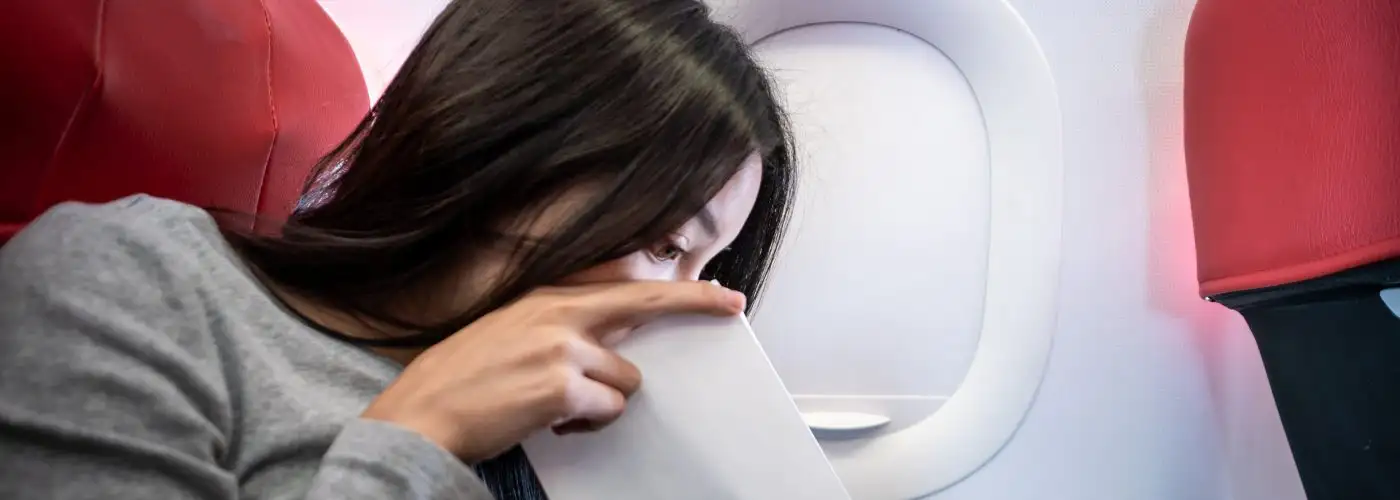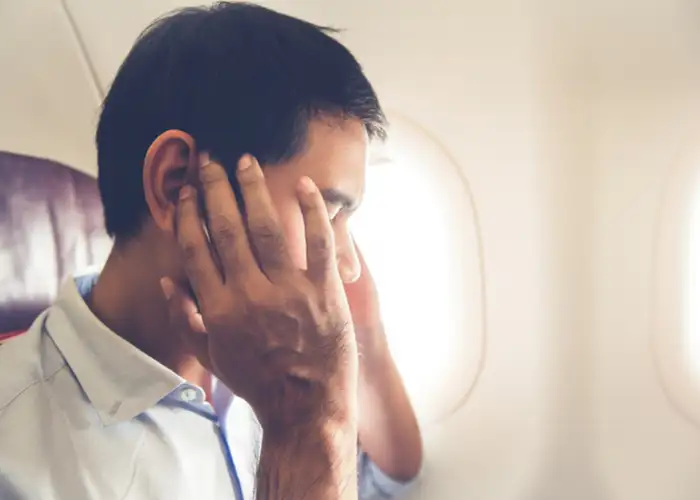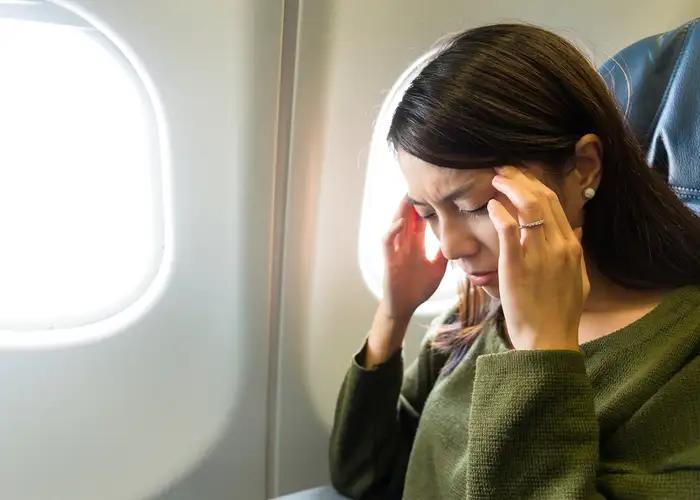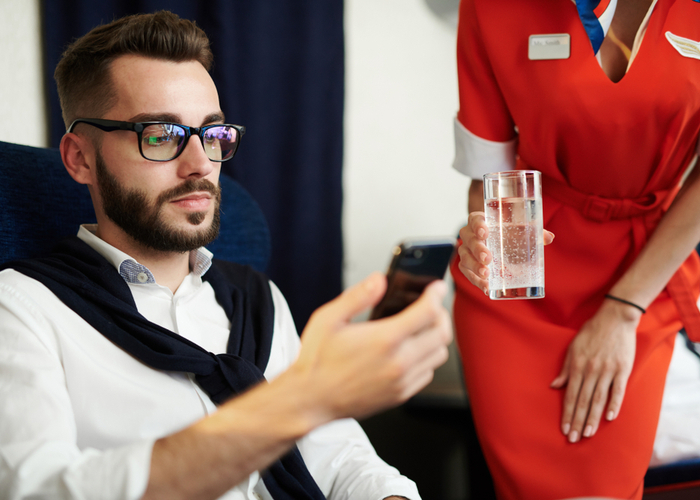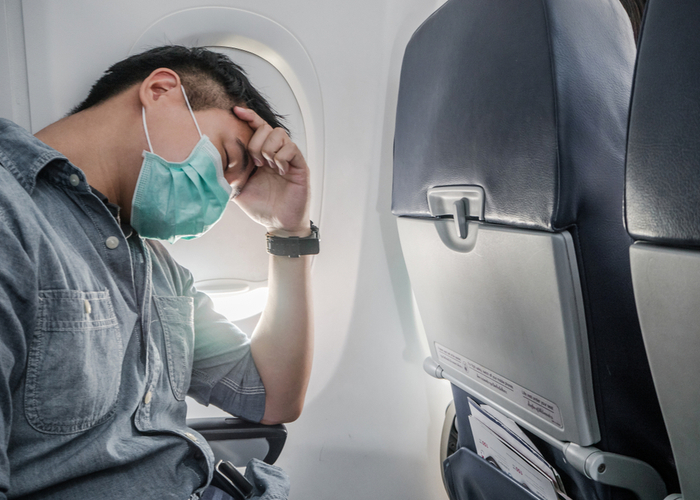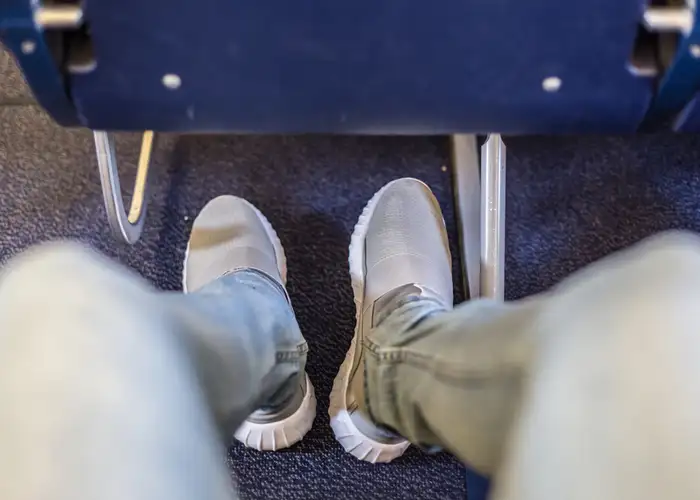From radiation to swollen ankles, all sorts of things happen to your body while flying. Here’s what you need to know for the next time you’re on an airplane, plus tips on how to combat these afflictions.
Your Ears May Block Up
If you’ve experienced your ears popping in-flight, you’re not alone. It happens when pressure increases as the plane climbs higher in the sky. If yawning or blowing your nose doesn’t tend to help you unblock your ears, try EarPlanes on your next flight. These airplane earplugs will regulate pressure in your ear so you don’t have to worry about your ears popping.
You Might Get a Sunburn
Did you know your risk of being exposed to radiation is higher on an airplane because you’re at a higher altitude with a thinner atmosphere? You might enjoy the view from the window seat, but airplane windows actually let in harmful UVA rays. Applying sunscreen before you fly will help protect you from UV ray exposure.
You Could Get Motion Sickness
If you’re susceptible to motion sickness, you may dread flights. When you’re sitting on an airplane, your eyes don’t detect any movement. But your inner ear knows that you’re flying, and this imbalance can cause headaches, dizziness, nausea, and fatigue. If you regularly experience such inflight symptoms, consider medicine to combat motion sickness. An hour before your flight, try popping a Bonine, a chewable non-drowsy tablet that helps prevent motion sickness.
You’re More Likely to Be Dehydrated
Planes are notorious for making you dehydrated. Low humidity in the cabin is the reason you get thirsty and your eyes and skin dry out. Combat this lack of moisture by bringing your own water bottle, eye drops, and lotion.
Your Taste Buds Are Weakened
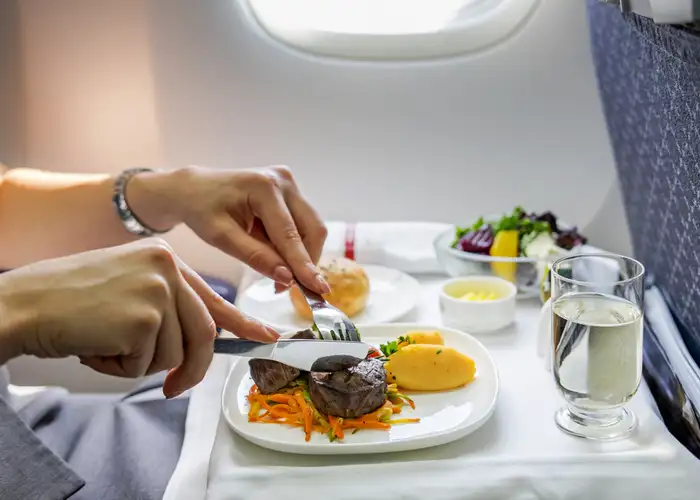
Have you ever brought food on a plane only to discover it tastes far blander than you thought it would? This is because your sense of smell is weakened on planes, and smell contributes to your sense of taste. Next time you think your airplane meal tastes salty, you’ll know why—airlines adjust their food to your weakened sense of taste.
You’re More Likely to Get Sick
Thanks to recycled plane air, passengers sitting in close proximity, and dirty surfaces like tray tables and seatback pockets, you have a higher chance of getting sick when you fly. People who sit in a window seat are less exposed to germs than aisle passengers, so consider booking a window seat for your next flight. Fight off any illnesses you might be exposed to by using hand sanitizer regularly and wipes to clean your seat.
Your Ankles Swell
Because you sit for so long, your lower legs and ankles might expand by the time you land. Compression socks help stimulate blood flow away from your feet and lower your risk of blood clots and deep vein thrombosis.
More from SmarterTravel:
- 5 Reasons for Bad Breath While Traveling (and What to Do About It)
- The Travel Illnesses to Avoid in 10 Popular Destinations
- 18 Surefire Ways to Get Sick While Traveling
SmarterTravel co-op Alyssa Lukpat loves exploring new places. Follow her on Twitter.
We hand-pick everything we recommend and select items through testing and reviews. Some products are sent to us free of charge with no incentive to offer a favorable review. We offer our unbiased opinions and do not accept compensation to review products. All items are in stock and prices are accurate at the time of publication. If you buy something through our links, we may earn a commission.
Related
Top Fares From
Today's Top Travel Deals
Brought to you by ShermansTravel
France: 8-Night Paris, Avignon & Nice...
Infinity Worldwide Vacations
 vacation
$2880+
vacation
$2880+
Poconos: 3 Nts in Garden of...
ResortsAndLodges.com
 hotel
$305+
hotel
$305+
7-Nt Canada & New England Cruise,...
Princess Cruises
 cruise
$839+
cruise
$839+
